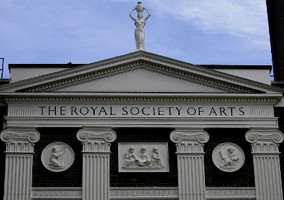The opening line of the executive summary of the Charity Commission’s report on the Garden Bridge says “The Garden Bridge project was a high profile and expensive failure”. Nothing to disagree with here. But by the end of the third paragraph this investigation into a charity whose size, structure, influence and purpose are all anomalous in a sector of 170,000 registered charities, has apparently become representative of “a failure for charities that risks undermining public trust”. This conclusion is particularly odd as the report itself mentions on numerous occasions how unusual the Garden Bridge Trust case was.
Yet despite the atypical nature of the case, Baroness Stowell, chair of the Charity Commission, chose in her statement to focus on how the Garden Bridge Trust brought the wider sector into disrepute. Her full statement does not specifically refer to any of the main lessons learnt. Instead Baroness Stowell says: “I understand that [the public’s] anger and am clear that this represents a failure for charity that risks undermining public confidence in charities generally.”
Public trust and confidence is important. Acevo has acknowledged that repeatedly. In a recent report with nfpSynergy we described trust as the "foundation" of the public’s relationship with charities. In January this year Acevo member Kate Lee wrote a blog on her golden formula for generating trust. Last October I tried to broker peace with the Charity Commission in a blog where I suggested how we could move forward the conversation on trust, and a few months before that my colleague Grace wrote another blog looking at the detail of the Charity Commission’s trust research.
Perhaps I shouldn’t be surprised by what increasingly feels like Groundhog Day. Baroness Stowell said from the very start of her tenure as chair that she wanted to “tackle the decline in public trust”. But focusing on public trust in every key speech and every high profile statement indicates to me that focusing on public trust is an organisational, maybe even personal choice, rather than a conclusion informed by evidence. Regulatory investigations should be based on evidence, not personal opinion.
'Headlines over help'
As an example of how different Baroness Stowell’s statement, and therefore the news headlines could have been, I have rewritten Baroness Stowell’s statement. There was so much more she could have said beyond generalist statements on public trust (my additions in italics),
“Londoners and taxpayers will legitimately feel angry and let down by the waste of millions of pounds of public money on a charitable project that was not delivered. I understand that anger and am clear that this represents a failure for charity that risks undermining public confidence in charities generally. In the future we would advise policymakers to think carefully before setting up an entirely new charity to deliver a single purpose or project. This includes consideration as to whether a charity is the best structure for such a project.
“While the charity was not mismanaged, the public would also expect, as I do, that the right lessons are learnt from this case, so that we don’t see a similar failure arising in future I want to take this opportunity to remind public policymakers that they retain ultimate responsibility for allocation of funds.
“The Charity Commission’s purpose is to ensure charity can thrive and inspire trust so that people can improve lives and strengthen society. In order to deliver on that purpose, we need to understand the wider context in which charities work and to help shape and update the environment in which they operate – and we need to be driven by the public interest in charity.
“That is why our report today goes beyond setting out our regulatory findings regarding the management of the charity in this specific case and looks at the wider circumstances that led to the project’s collapse, and at the lessons that should be learnt as a result the Charity Commission has committed to making changes to our own practices by seeking to engage those applying to set up charities structurally similar to the Garden Bridge Trust.”
Everything in italics is a finding from the Charity Commission’s Garden Bridge Trust report, all of it is more useful than accusations that the public confidence in all charities has been undermined. Not for the first time soundbites have been chosen over specificity, headlines over help.
The Charity Commission is an important part of a healthy charity sector ecosystem. I respect the people that work at the Charity Commission and I appreciate the open lines of communication extended to Acevo by Baroness Stowell. But Acevo’s policy strategy is clear: we believe that good regulation is enabling, inclusive and transparent.
Our vision is of a regulator that gives civil society leaders the tools and information they need to run effective organisations. This includes providing them with information about the lessons learnt from cases where charities act recklessly, illegally or immorally. But calling the Garden Bridge Trust a failure of charity rather than the failure of a charity is a failure of the regulator.
Kristiana Wrixon is head of policy at Acevo.
|
Related articles












